The Delphi Method: A Powerful Tool For Consensus Building And Forecasting
The Delphi Method: A Powerful Tool for Consensus Building and Forecasting
Related Articles: The Delphi Method: A Powerful Tool for Consensus Building and Forecasting
Introduction
In this auspicious occasion, we are delighted to delve into the intriguing topic related to The Delphi Method: A Powerful Tool for Consensus Building and Forecasting. Let’s weave interesting information and offer fresh perspectives to the readers.
Table of Content
The Delphi Method: A Powerful Tool for Consensus Building and Forecasting
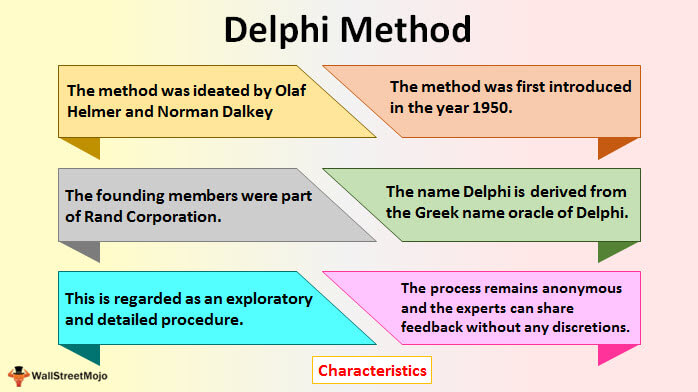
The Delphi method is a structured communication technique used to elicit expert opinions on a specific topic, ultimately converging on a consensus forecast or decision. Its unique structure, employing multiple rounds of anonymous questionnaires and feedback, fosters a collaborative environment where individual biases are minimized, and group wisdom emerges. This approach is particularly valuable when dealing with complex issues where uncertainty and conflicting perspectives are prevalent.
Understanding the Process:
The Delphi method operates in distinct phases, each contributing to the refinement of the collective understanding and the eventual consensus.
Phase 1: Initial Questionnaires
The process begins with the identification of a clearly defined question or problem. A panel of experts, carefully selected for their diverse knowledge and perspectives, is then assembled. Each expert receives an initial questionnaire, designed to gather individual opinions and insights on the chosen topic. This first round encourages independent thinking and avoids early group influence.
Phase 2: Feedback and Refinement
The responses from the initial questionnaires are compiled and analyzed. A summary of the key findings, including areas of agreement and disagreement, is then presented to the experts. This feedback provides valuable insights into the collective thinking on the topic. Experts are then given an opportunity to revise their initial responses based on the shared information.
Phase 3: Iterative Rounds
The process of feedback and revision continues in subsequent rounds. Each iteration builds upon the previous one, as experts adjust their perspectives based on the evolving consensus. This iterative approach allows for a gradual convergence of opinions, reducing individual biases and promoting a more objective understanding.
Phase 4: Consensus Formation
As the rounds progress, the range of responses typically narrows, indicating a growing consensus among the experts. The final round aims to solidify this agreement, producing a clear and well-defined forecast or decision. This consensus, representing the collective wisdom of the expert panel, provides valuable guidance for decision-making and future planning.
Benefits of the Delphi Method:
The Delphi method offers several distinct advantages, making it a valuable tool for diverse applications:
- Reduced Bias: The anonymity inherent in the method minimizes the influence of individual biases, such as groupthink, dominance, or personal agendas. Experts can freely express their opinions without fear of judgment or pressure from peers.
- Enhanced Collaboration: The iterative nature of the process fosters a collaborative environment where experts learn from each other’s perspectives. This exchange of ideas helps to refine individual opinions and promotes a more holistic understanding of the topic.
- Improved Accuracy: By aggregating the knowledge and expertise of multiple individuals, the Delphi method offers a more accurate and reliable forecast or decision than relying on a single expert opinion.
- Increased Consensus: The structured feedback and iterative rounds facilitate a gradual convergence of opinions, leading to a stronger consensus among the experts. This shared understanding provides a solid foundation for decision-making.
- Flexibility and Adaptability: The Delphi method can be adapted to address a wide range of topics and situations, making it a versatile tool for diverse applications.
Applications of the Delphi Method:
The Delphi method finds applications in a variety of fields, including:
- Forecasting: Predicting future trends in various domains, such as technology, economics, or social behavior.
- Strategic Planning: Developing strategic plans for organizations, incorporating expert insights and future projections.
- Policy Development: Informing policy decisions by gathering expert opinions on complex issues and potential solutions.
- Decision-Making: Supporting decision-making processes by providing a structured framework for evaluating options and reaching a consensus.
- Research and Development: Guiding research and development efforts by identifying promising areas of investigation and potential breakthroughs.
FAQs on the Delphi Method:
1. What are the key advantages of using the Delphi method?
The Delphi method offers several advantages, including reduced bias, enhanced collaboration, improved accuracy, increased consensus, and flexibility and adaptability.
2. How is the panel of experts selected for a Delphi study?
The panel of experts is carefully selected based on their expertise, experience, and diversity of perspectives. The selection process aims to ensure a balanced representation of relevant knowledge and opinions.
3. How many rounds are typically involved in a Delphi study?
The number of rounds in a Delphi study can vary depending on the complexity of the topic and the desired level of consensus. Typically, three to five rounds are sufficient to achieve a stable consensus.
4. What are some common challenges associated with conducting a Delphi study?
Challenges in conducting a Delphi study include securing the participation of qualified experts, ensuring anonymity and confidentiality, managing the time and resources required for the process, and interpreting the results effectively.
5. How can the Delphi method be used to improve decision-making?
The Delphi method can improve decision-making by providing a structured framework for gathering expert opinions, facilitating consensus building, and reducing bias.
Tips for Implementing a Delphi Method:
- Clearly define the topic and research question.
- Select a diverse and qualified panel of experts.
- Develop a structured questionnaire format.
- Ensure anonymity and confidentiality of responses.
- Provide clear and concise feedback to experts.
- Analyze the data carefully to identify trends and patterns.
- Summarize the results in a clear and concise report.
Conclusion:
The Delphi method is a powerful tool for consensus building and forecasting, offering a structured approach to harnessing the collective wisdom of experts. Its ability to reduce bias, enhance collaboration, and promote a more objective understanding makes it a valuable asset for diverse applications, ranging from strategic planning to policy development and research. As organizations and individuals grapple with complex challenges in an increasingly uncertain world, the Delphi method provides a valuable framework for navigating these complexities and making informed decisions based on the collective knowledge and expertise of a diverse group.
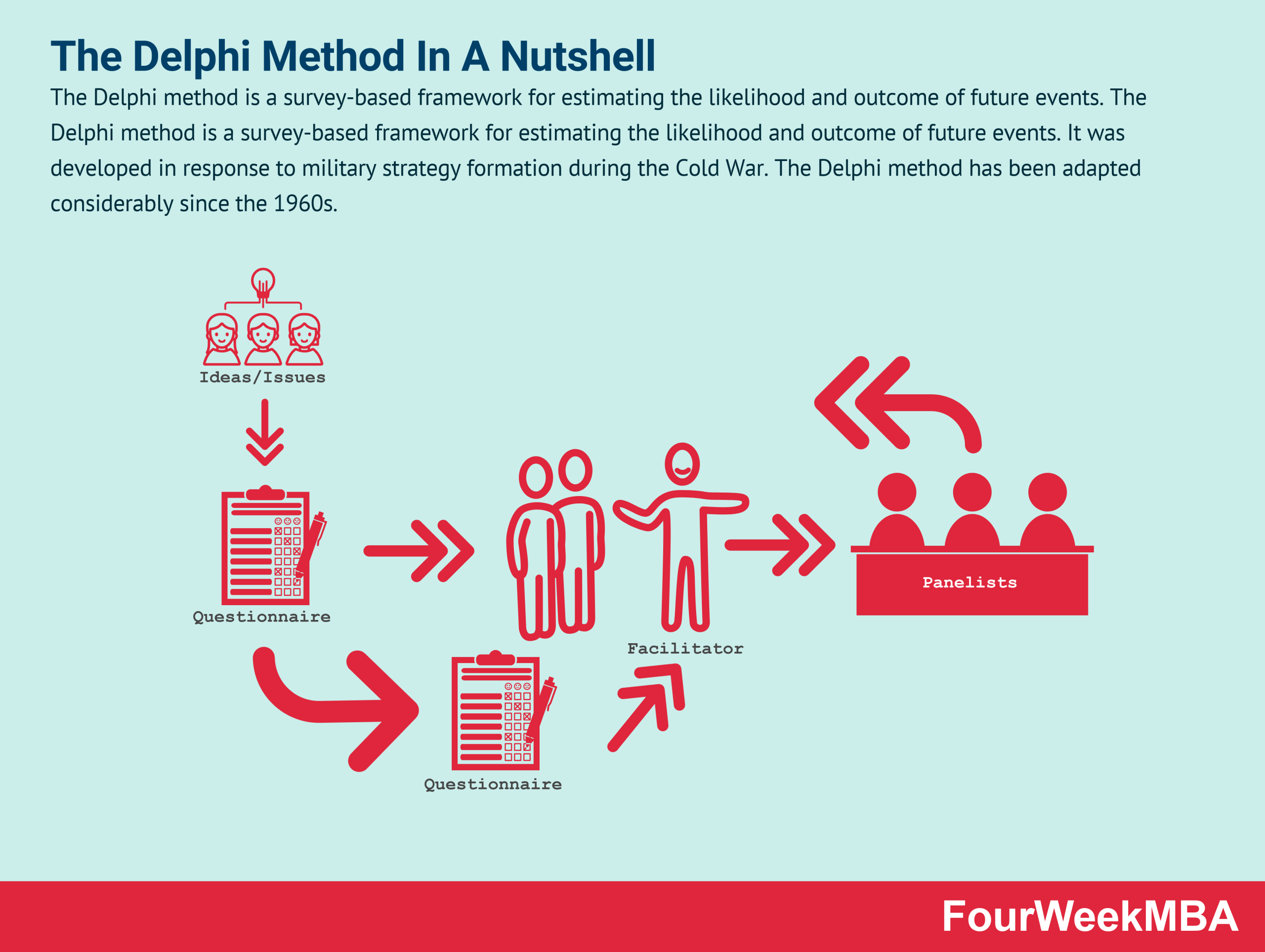
:max_bytes(150000):strip_icc()/DelphiMethod-f33014e30896429d820d92a51582a08c.jpg)

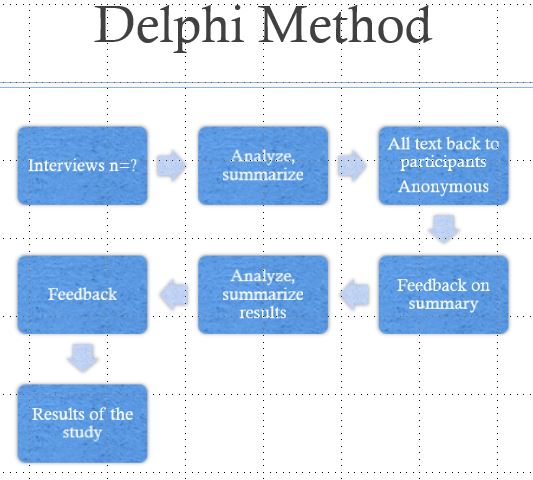

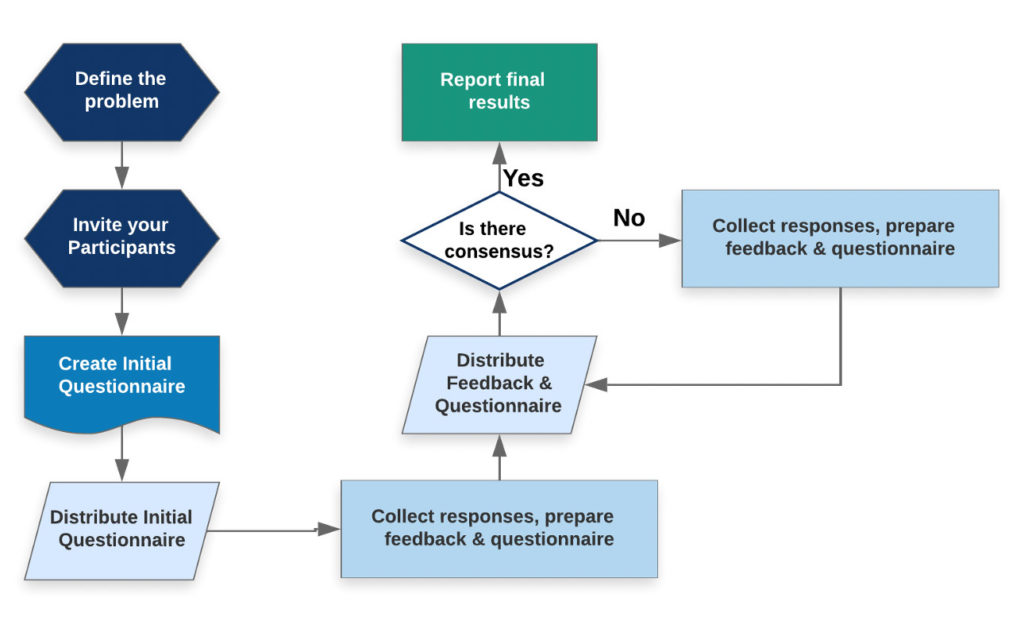

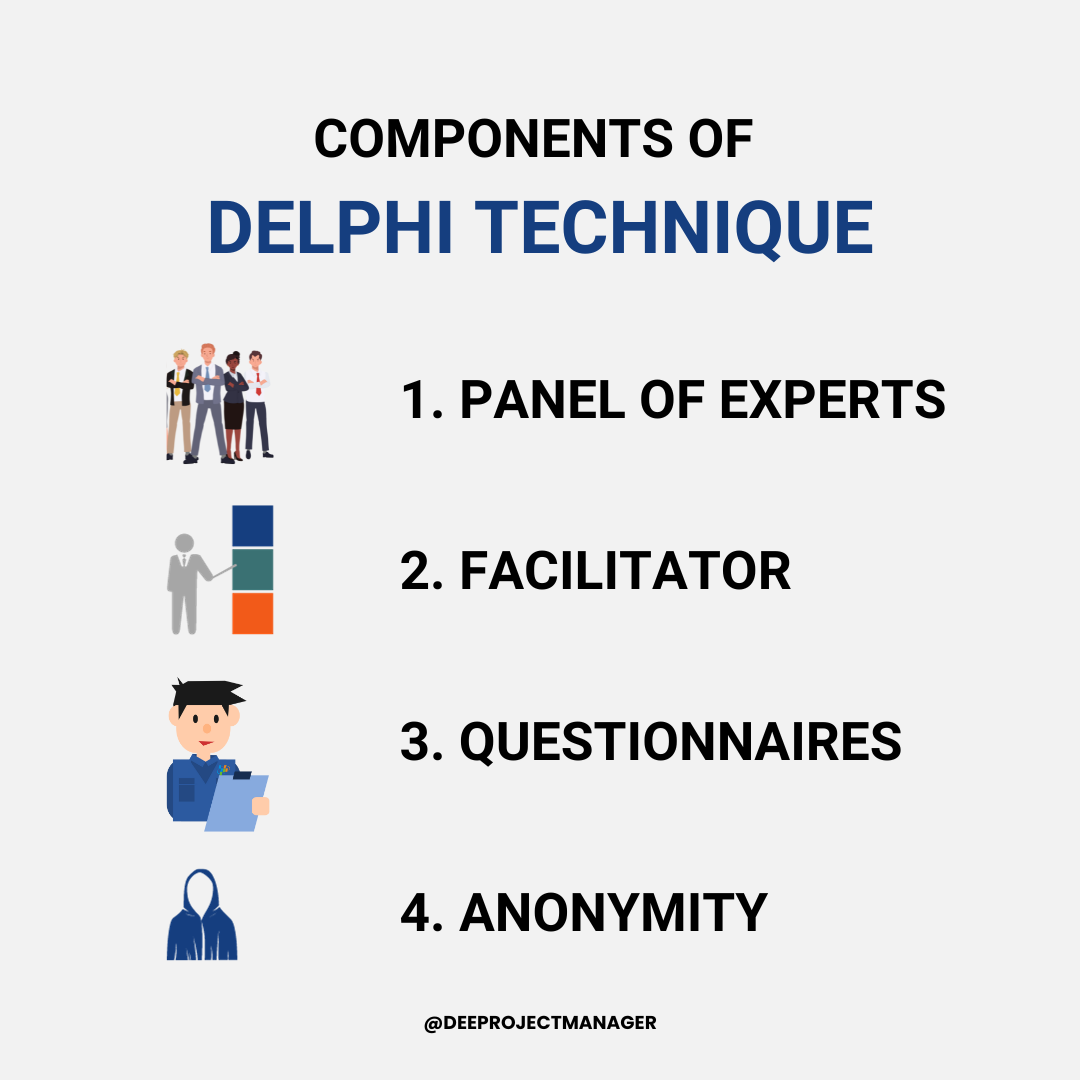
Closure
Thus, we hope this article has provided valuable insights into The Delphi Method: A Powerful Tool for Consensus Building and Forecasting. We thank you for taking the time to read this article. See you in our next article!
You may also like
Recent Posts
- Navigating The Digital Landscape: A Comprehensive Guide To AT&T’s Service Map For Internet
- Navigating The Keystone Resort Ski Map: A Comprehensive Guide To Exploring The Mountain
- Navigating The Waters: Understanding Nautical Mile Maps
- Navigating The Rails: A Comprehensive Guide To The RTD Train Map
- Navigating Baltimore County: A Guide To The Zoning Map
- A Comprehensive Guide To Parris Island, South Carolina: Navigating The Cradle Of Marines
- Navigating The Waters Of Smith Lake, Alabama: A Comprehensive Guide
- Navigating Kingsland, Texas: A Comprehensive Guide To The City’s Map
Leave a Reply